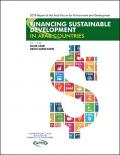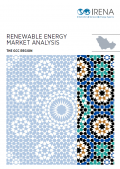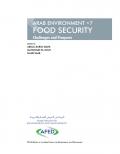
This report, released the 2018 Arab Forum for Environment and Development Annual Conference, identifies financing needs, gaps, options and mechanisms for sustainable development in Arab countries, focusing on sources of finance and addressing enhancement of their roles.

This report includes illustrative case studies on the Obama Administration’s efforts in a number of key countries—Chile, Costa Rica, Dominican Republic, El Salvador, Guatemala, Honduras, Nicaragua, Morocco, Oman, and Peru—in which USTR and the U.S. Department of State have had intensive engagement on environmental issues in recent years. Presenting unique opportunities and challenges, each country has required a tailored approach. Its objective in each, however, has been the same—to ensure that increased trade goes hand in hand with increased environmental protection.

This study aims to provide a methodology for mapping the progress in the Arab region in the adoption and implementation of green economy policies. This mapping is proposed as a policy tool for governments of the ESCWA Region. As such, it is designed to identify the various challenges that the region faces as they still strive to achieve sustainable development, and to highlight potential opportunities for countries in the region to “green” their economies.
The study relies on a set of indicators that represent the transition to a green economy at the macro and micro level. Those indicators are based on those developed by the OECD, UNEP, and UNIDO, and adapted in such a way as to also reflect key social goals, such as the need for greater focus on social equity and poverty eradication. The papar includes a fact sheet of each of the countries in the Arab region, and detailed reports on four pilot countries: Egypt, Jordan, Lebanon, and Oman.
